Diseases Treated with Cord Blood
Many people are surprised to learn all the different diseases cord blood cells can treat. Cord blood treatment is already used for blood, autoimmune and metabolic disorders as well as several types of cancer.
When doctors administer cord blood therapy, stem cells are injected into the bloodstream, where they naturally move towards damaged areas. While it’s up to your family and personal physicians to determine when a stem cell transplant is necessary, the following list contains every possible treatment available to families with stored cord blood. Researchers discover new therapies every year, so this list is constantly expanding.
Current cord blood treatments, displayed below, are split into four sections:
- Cancers
- Blood Disorders
- Metabolic Disorders
- Immune Disorders
Cancers
Leukemia, lymphoma and several other cancer types are treated with cord blood stem cells. Cancer is a deadly condition for many patients, and often causes weight loss, fatigue and constant pain. The following types of cancer are treated with a cord blood transplant:
- Acute Biphenotypic Leukemia
- Acute Lymphocytic Leukemia
- Acute Myelogenous Leukemia
- Acute Undifferentiated Leukemia
- Adult T Cell Leukemia/Lymphoma
- Chronic Active Epstein Barr
- Chronic Lymphocytic Leukemia
- Chronic Myelogenous Leukemia
- Ewing Sarcoma
- Hodgkin’s Lymphoma
- Juvenile Chronic Myelogenous Leukemia
- Juvenile Myelomonocytic Leukemia
- Myeloid/Natural Killer Cell Precursor Acute Leukemia
- Non-Hodgkin’s Lymphoma
- Prolymphocytic Leukemia
- Plasma Cell Leukemia
- Chronic Myelomonocytic Leukemia
- Leukocyte Adhesion Deficiency
- Multiple Myeloma
- Neuroblastoma
- Rhabdomyosarcoma
- Thymoma
- Waldenstrom’s Macroglobulinemia
- Wilms Tumor
Blood Disorders
Blood disorders, including multiple types of anemia, are treated with cord blood stem cells. These conditions are caused by an imbalance in the body’s cellular structure, and lead to swelling, blood clots and excessive bleeding, which can be deadly. Cord blood therapy is available for patients with the following blood disorders:
- Acute Myelofibrosis
- Agnogenic Myeloid Metaplasia
- Amyloidosis
- Aplastic Anemia
- Beta Thalassemia Major
- Blackfan-Diamond Anemia
- Congenital Amegakaryocytic Thrombocytopenia
- Congenital Cytopenia
- Congenital Dyserythropoietic Anemia
- Dyskeratosis Congenita
- Essential Thrombocythemia
- Fanconi Anemia
- Glanzmann’s Thrombasthenia
- Myelodysplastic Syndrome
- Paroxysmal Nocturnal Hemoglobinuria
- Polycythemia Vera
- Pure Red Cell Aplasia
- Refractory Anemia with Excess Blasts
- Refractory Anemia with Excess Blasts in Transition
- Refractory Anemia with Ringed Sideroblasts
- Shwachman-Diamond Syndrome
- Sickle Cell Anemia
Metabolic disorders
Metabolic disorders, including Hurler syndrome and Krabbe disease, often lead to seizures, weight loss and frequent body pain. In some cases these diseases can be extremely dangerous. Cord blood therapy is available for patients with the following conditions:
- Congenital Erythropoietic Porphyria
- Gaucher Disease
- Hunter Syndrome
- Hurler Syndrome
- Krabbe Disease
- Lesch-Nyhan Syndrome
- Mannosidosis
- Maroteaux-Lamy Syndrome
- Metachromatic Leukodystrophy
- Mucolipidosis II
- Neuronal Ceroid Lipofuscinosis
- Niemann-Pick Disease
- Sandhoff Disease
- Sanfilippo Syndrome
- Scheie Syndrome
- Sly Syndrome
- Tay Sachs
- Wolman Disease
- X-Linked Adrenoleukodystrophy
Immune Disorders
Immune disorders, like Evans syndrome and Myelokathexis, will cause the body to attack its own cells. This often results in fatigue and constant fevers. In certain cases, an immune disorder can be deadly. Cord blood therapy is available for patients with the following immune conditions:
- Adenosine Deaminase Deficiency
- Bare Lymphocyte Syndrome
- Chediak-Higashi Syndrome
- Chronic Granulomatous Disease
- Congenital Neutropenia
- DiGeorge Syndrome
- Evans Syndrome
- Fucosidosis
- Hemophagocytic Lymphohistiocytosis
- Hemophagocytosis Langerhans’ Cell Histiocytosis
- IKK Gamma Deficiency
- Immune Dysregulation Syndrome
- Kostmann Syndrome
- Myelokathexis
- Omenn Syndrome
- Phosphorylase Deficiency
- Purine Nucleoside
- Reticular Dysgenesis
- Severe Combined Immunodeficiency Diseases
- Thymic Dysplasia
- Wiskott-Aldrich Syndrome
- X-linked Agammaglobulinemia
- X-Linked Lymphoproliferative Disorder
- X-Linked Hyper IgM Syndrome
In 2007, cord blood was used as a therapy for over 40 diseases. Since then, the list of treatments has more than doubled, and researchers continue adding new therapies. Clinical trials are currently testing cord blood as a treatment for other serious conditions, including:
- Autism
- Hearing Loss
- Cerebral Palsy
- Spinal Cord Injury
In total, there are over 30 diseases under clinical research for cord blood. All of these trials are approved by the U.S. Food and Drug Administration (FDA). If researchers are successful, new stem cell therapies may become available, and families with stored cord blood will have access to additional treatments for dangerous autoimmune, heart and neurological disorders.
Private, or family, banks store your child’s cord blood, so you have access to stem cells in the future. Parents currently researching cord blood can find more information about private banks here.

